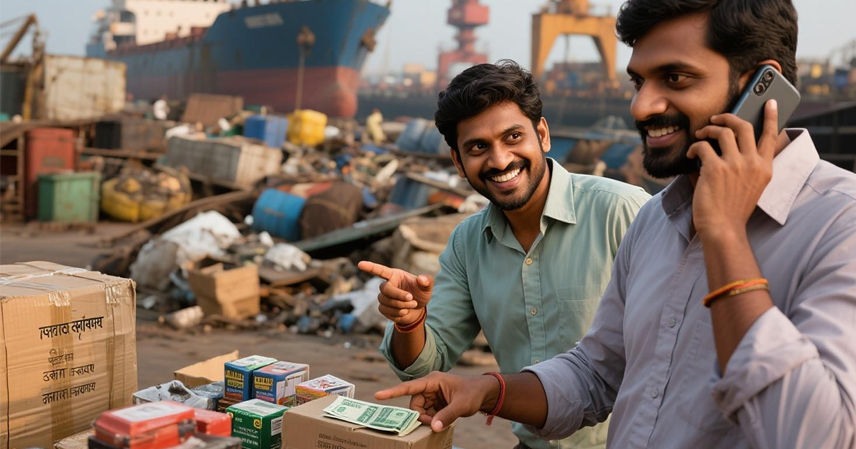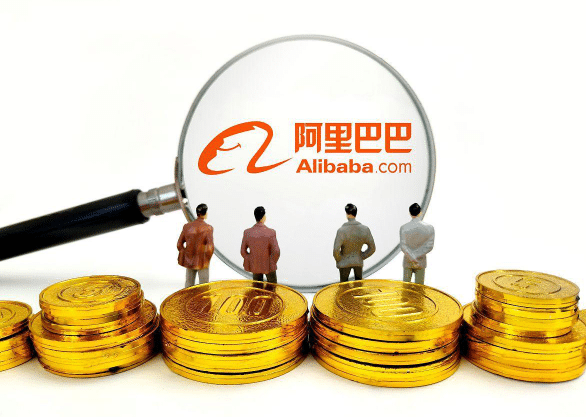In a bizarre yet revealing twist in global trade, a small business owner in Yiwu, China’s largest export hub, shipped 2,000 right-foot shoes to an Indian buyer — promising to send the left ones only after receiving the final payment. What sounds like an internet joke is, in fact, a real-life reflection of how deeply trust issues plague cross-border trade between China and India.
For many foreign trade merchants in Yiwu, such “creative measures” have become a last resort after years of unpaid orders, disappearing buyers, and endless disputes. The story of the “right shoes” is not about pettiness — it’s about survival in an environment where good faith often fails.
The High Cost of “Trust Me Later”
According to local traders, the Indian buyer in question had paid a 10% deposit and insisted on paying the rest only when the shipment arrived at an Indian port. The seller, having heard countless stories of unpaid balances and vanished clients, decided to ship only half the goods — literally.
Such defensive tactics didn’t appear overnight. Yiwu’s export community, which handles millions of small-scale transactions every year, has long been burned by similar cases. In one instance, a merchant shipped an entire container of goods to India, only for the buyer to disappear after delivery. No payment was ever made, and legal recovery across borders proved impossible.
“Once bitten, twice shy,” one Yiwu trader said. “Sending only the right shoes may sound extreme, but it’s better than losing the entire shipment.”
India’s Reputation Problem in Global Trade
While not every Indian buyer is unreliable, the country has gained a complicated reputation in international trade circles. Complaints about delayed payments, fabricated disputes, and “technical issue” excuses are not limited to Chinese exporters.
On foreign trade forums from Germany to Japan, businesspeople have shared similar frustrations. A German machinery manufacturer once revealed that an Indian client refused to pay upon delivery, citing “specification mismatches,” forcing the company to sell the equipment at a loss. Japanese apparel firms reported cases where Indian buyers used fake credentials to obtain samples, then reverse-engineered them for local mass production.
These experiences have made global exporters wary. Many now treat contracts with Indian partners with extra layers of verification, insurance, and payment security.
Systemic Challenges: When Law and Culture Collide
Experts point out that the issue isn’t just about dishonest individuals but also about India’s commercial environment. The country’s judicial process is notoriously slow, and enforcing international trade contracts can take years — if they are enforceable at all.
“Even when a case is filed, foreign plaintiffs face procedural delays and local protectionism,” said a Shanghai-based international trade lawyer. “For small exporters, pursuing legal action is simply not worth the cost.”
Culturally, Indian business practices also emphasize relationship-based negotiation. Contracts are often seen as flexible frameworks rather than binding rules. While this can encourage adaptability, it can also open doors to exploitation when trust breaks down.
Corporate Giants Are Not Immune
Even multinational corporations have stumbled in India’s unpredictable business landscape.
- Samsung once had its equipment arbitrarily detained by customs.
- Xiaomi faced massive tax claims and sudden regulatory crackdowns.
- Apple’s supply chain repeatedly suffered from policy reversals and local bureaucracy.
If global giants with legal teams and political connections can face such obstacles, the risks for small and medium exporters are self-evident.
How Yiwu Adapted: Technology and Street Smarts
Yiwu’s merchants have responded not with anger but with innovation and pragmatism. “No trust, no problem — we create systems,” one veteran exporter joked.
- Orders are now handled through digital verification platforms that flag high-risk buyers.
- Export credit insurance is becoming standard for large transactions.
- Prepayment-only policies are widely adopted, especially for clients from high-risk markets.
- Some traders even share “blacklists” of unreliable buyers across merchant associations.
The shoe seller’s “right-foot strategy” might have gone viral online, but in Yiwu, it’s just a visible symbol of a broader shift toward self-protection in global trade.
Between Humor and Hard Reality
Despite the humor in shipping only one side of a pair, the underlying reality is far from funny. It reflects the erosion of trust in a sector where personal relationships once ruled.
Indian entrepreneurs themselves are not spared by this system; many honest traders struggle against the stereotype created by others. Still, as one Yiwu merchant put it, “In trade, trust is currency. Once it’s gone, you can’t print more of it.”
Until international commerce can better enforce contracts and balance risk, the “right-shoe strategy” may remain one of the most practical metaphors for how small businesses survive in a world where promises too often go unpaid.



